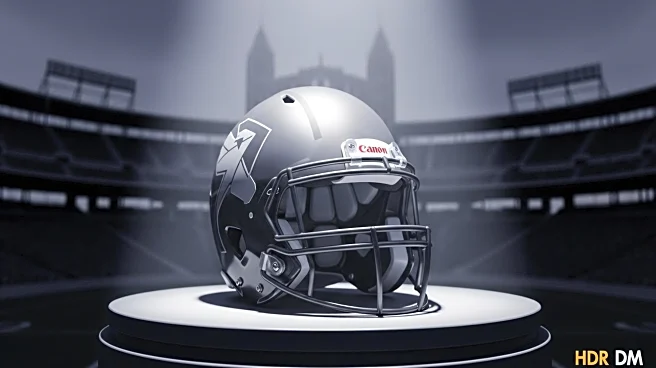What's Happening?
The Dallas Cowboys are facing significant challenges with their defense, currently ranked as the worst in the NFL, allowing 420.5 yards per game. Despite having the top offense, the team struggles with defending the pass, particularly in the safety position. Following a serious injury to Malik Hooker, the Cowboys are looking to address these defensive issues in the upcoming 2026 NFL Draft. According to a mock draft by Randy Gurzi from Sports Illustrated, the Cowboys are projected to select Oregon safety Dillon Thieneman and Auburn pass rusher Keldric Faulk with their first-round picks. Thieneman, who previously played for Purdue, has demonstrated his potential as a Round 1 talent with impressive stats, including six interceptions as a freshman and 210 tackles over two seasons.
Why It's Important?
The Cowboys' decision to focus on defensive reinforcements in the draft is crucial for improving their overall team performance. With the league's worst defense, enhancing their safety and pass rush capabilities could significantly impact their ability to compete at a higher level. Dillon Thieneman's addition could bring a much-needed change in the defensive culture, given his proven track record and leadership qualities. This strategic move is essential for the Cowboys to balance their offensive prowess with a more robust defense, potentially leading to better outcomes in future games and seasons.
What's Next?
As the Cowboys prepare for the 2026 NFL Draft, they will likely continue evaluating potential defensive talents to ensure they make the most of their first-round picks. The team's management and coaching staff will need to focus on integrating new players like Thieneman into their defensive strategy, aiming to address the current weaknesses. Stakeholders, including fans and analysts, will be watching closely to see how these draft decisions impact the Cowboys' performance in the upcoming seasons.
Beyond the Headlines
The Cowboys' focus on defense in the draft highlights broader trends in the NFL, where teams increasingly prioritize balanced rosters to achieve sustained success. This shift may influence other teams to reassess their strategies, emphasizing the importance of a strong defense alongside a powerful offense. Additionally, Thieneman's potential selection underscores the value of scouting and developing young talent from college programs, which can lead to long-term benefits for professional teams.









